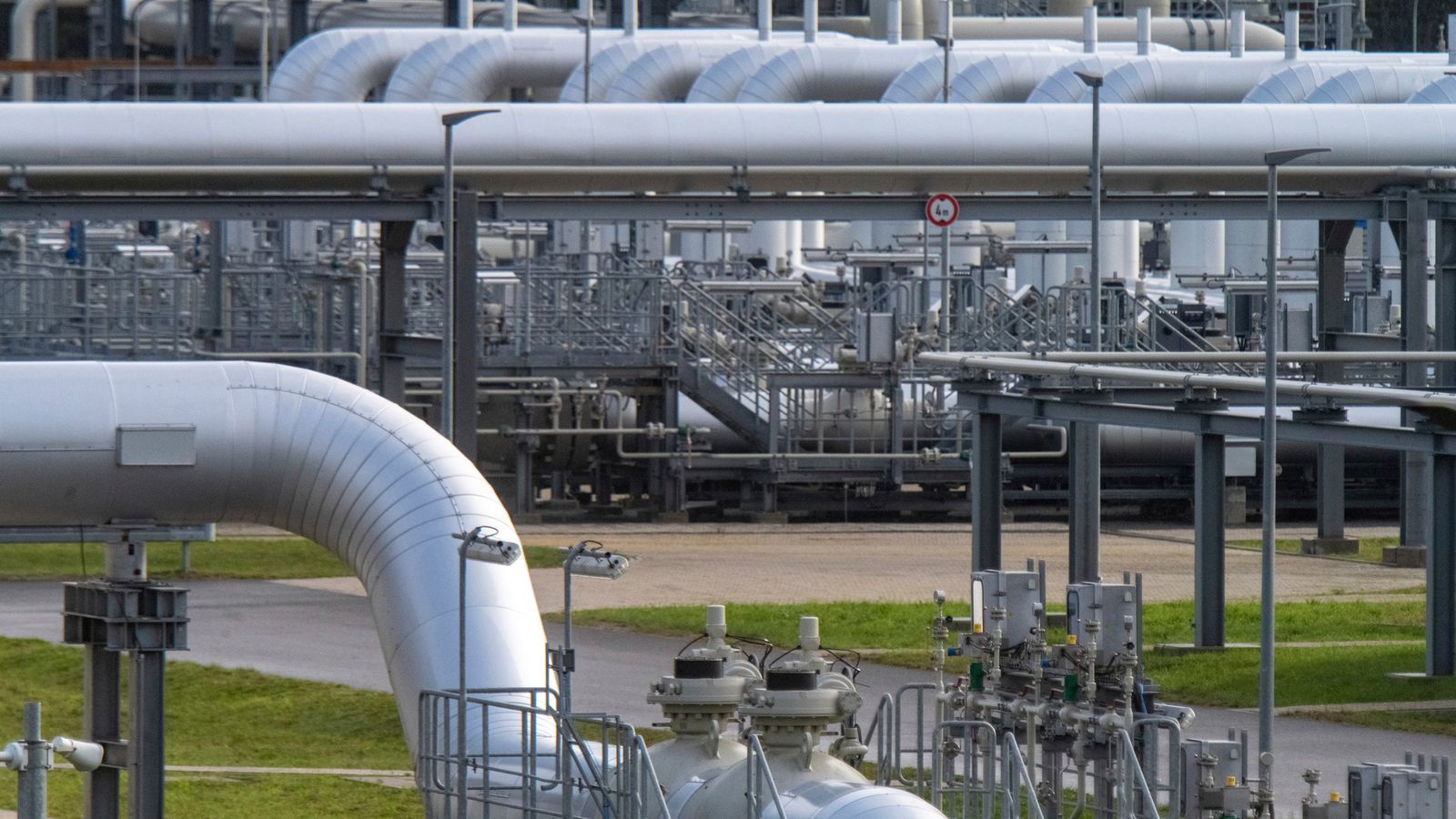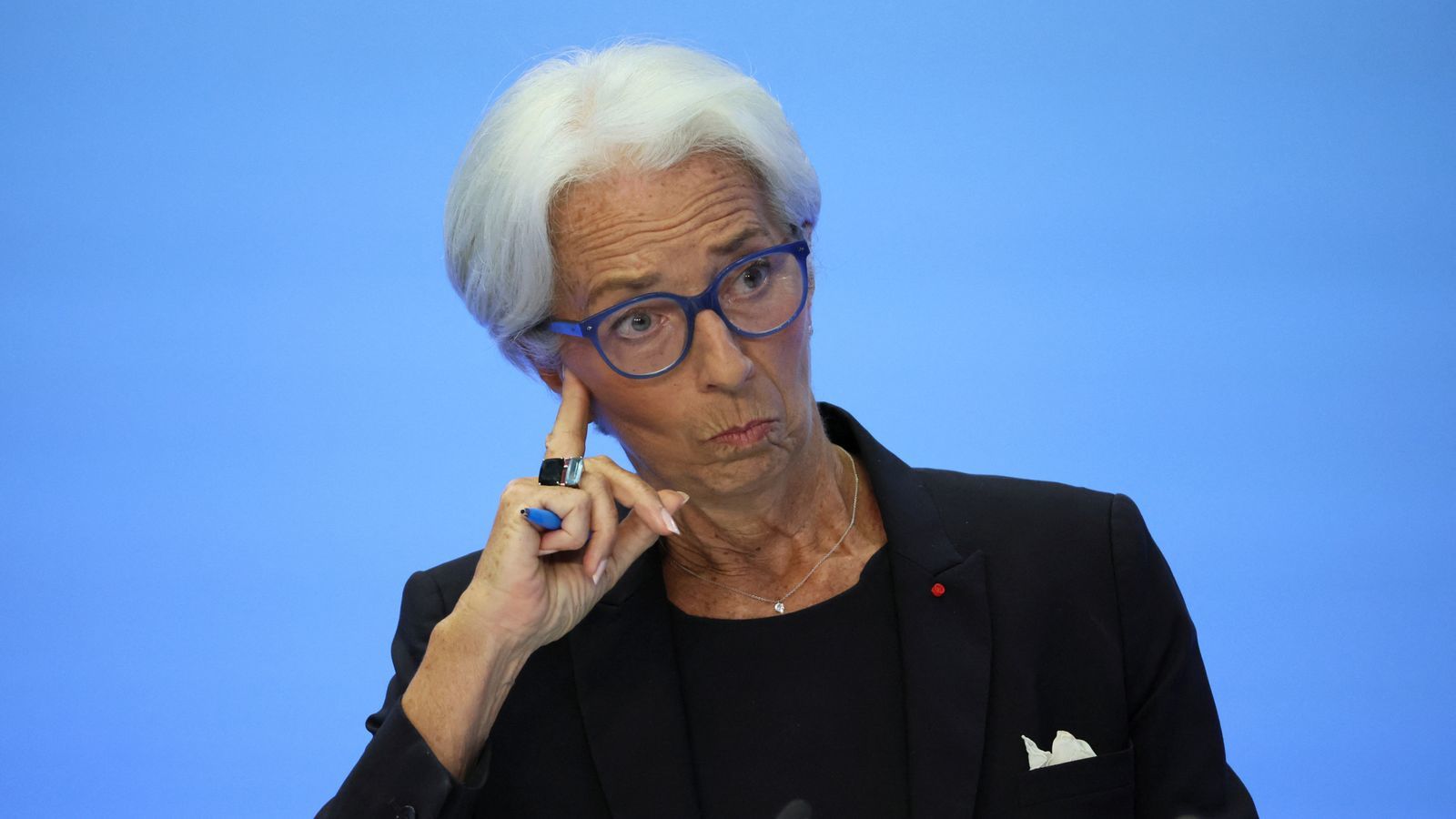
Why an easing of inflation in the eurozone is not being cheered by financial markets
October is traditionally an awful month for stock market investors.
And yet, for the first time since the summer of 2021, global equities look set to complete back to back monthly gains for October and November.
The STOXX 600, the most widely-followed pan-European stock index, is up some 13% since the beginning of October while the S&P 500, the broadest US stock index, is up by just over 10% in the same period.
This optimism largely reflects hopes that central banks around the world, led by the US Federal Reserve, will "pivot" and slow the pace at which they have been raising interest rates.
That thesis, of course, relies on an easing in inflation.
There was good news on that front earlier this month, when the headline rate of inflation for October came in at a lower than expected annual rate of 7.7%, making it the first month since February that the figure had come in below 8%.
And on Wednesday morning, encouragingly, the eurozone got in on the act.
The headline rate of inflation in the 19 countries using the euro fell for the first time in 17 months in November, falling from the record 10.6% seen in October to 10%, way below the 10.4% that had been expected by economists
The key factor was an easing in the pace at which energy costs are increasing. These rose, on a year-on-year basis, by 34.9% - down from the astonishing 41.5% seen in October.
 Gas costs have risen substantially across the continent, particularly since the war in Ukraine began.
Gas costs have risen substantially across the continent, particularly since the war in Ukraine began. The bad news was that food, tobacco and drink prices in the eurozone are still rising on a year-on-year basis - up from 13.1% in October to 13.6% in November. And "core" inflation - the measure that strips out volatile elements such as food, drink and energy - was unchanged at 5% from the October number.
Accordingly, reaction to the figures was muted. Inflation remains at five times the European Central Bank's (ECB) target rate.
Most economists therefore believe the ECB, which only as recently as July took the eurozone out of negative interest rate territory for the first time in nearly three years, will have little choice but to continue raising the cost of borrowing for the time being.
Hussain Mehdi, macro and investment strategist at HSBC Asset Management, said: "The ECB is unlikely to back off from rate increases anytime soon given their focus on core inflation which remains sticky at an uncomfortably high level.
"There also remain upside risks to wage growth and a potential de-anchoring of inflation expectations."
Gurpreet Gill, macro strategist in fixed Income and liquidity solutions at Goldman Sachs Asset Management, added: "Inflation in the eurozone may have fallen this month but remains high at 10%, while core inflation held steady at 5%, driven by both cyclical and structural forces.
"Firm wage growth and high commodity prices are generating broad-based inflation pressures across core goods and services, including rents where inflation tends to be persistent. Wage growth has picked up to almost 4%, above the 3% level considered to be consistent with 2% inflation.
"The ongoing investment required to secure cleaner and more affordable energy sources and to strengthen supply chain resilience will likely contribute to upside inflationary pressures over the medium term. This provides a challenging backdrop for the ECB's attempts to return inflation to its 2% target.
"In the near term, absent a material growth deterioration, risks to inflation are skewed to the upside, implying the ECB rate hiking cycle may continue into 2023."
It is also worth noting that, while the headline rate of inflation in the eurozone has slipped to 10%, it remains appreciably higher than that in many countries using the single currency.
 President of the European Central Bank Christine Lagarde has to grapple different inflation rates within euro member states
President of the European Central Bank Christine Lagarde has to grapple different inflation rates within euro member states
In Italy it stands at 12.5% and in the Netherlands it is currently 11.2%, although in both countries, it is heading in the right direction. And the Baltic trio of Latvia, Lithuania and Estonia, the eurozone members most painfully exposed to the consequences of Vladmir Putin's war on Ukraine, are still suffering inflation of more than 21% apiece.
Nonetheless, the softer-than-expected November number has persuaded the market that the ECB will not raise rates as aggressively at its next policy meeting on 15 December.
A rise from 2% to 2.75% had been widely expected but a rise to just now 2.5% is now being priced in. That would indeed represent a slowdown for the ECB following two successive increases from 0.5% to 1.25% in September and one from 1.25% to 2% in October.
The other reason why the ECB may also err on the side of caution and moderate the pace of interest rate hikes is because the eurozone, like the UK, is very probably heading for a recession if it is not already in one.
That is also something to which financial markets are pointing.
The market in German government bonds is currently seeing the phenomenon known as "yield curve inversion" - where yields (a measure of the return an investor receives on a bond or a share) are higher for shorter dated bonds than longer dated ones. The yield on two-year German debt currently stands at 2.121% while it is at 1.937% for 5-year debt and 1.928% for 10-year debt.
Yield curve inversion is traditionally seen as a sure-fire indicator that a recession is on the way.
This is a case that has been set out in recent days by some ECB rate-setters.
But others disagree.
Isabel Schnabel, the German representative on the rate-setting ECB governing council, said last week that the bank had only limited scope to moderate the pace of its interest rate hikes because government policies aimed at protecting households and businesses from higher energy prices would themselves keep inflation higher for longer.
She is not alone in holding that view.
Accordingly, while it is good news that the eurozone is seeing a decline in inflation, it is important not to get carried away.
Inflation is merely falling. It remains way above its target rate and it is too soon to say prices have stabilised. Further interest rate hikes from the ECB are certain.










